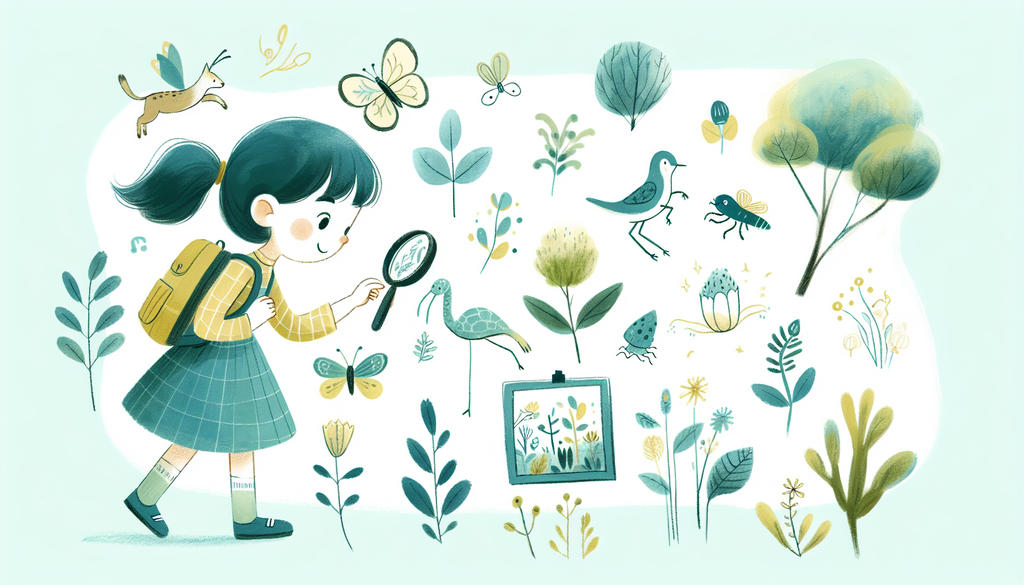Exploring Nature's Classroom: Outdoor Education for Special Needs

As Woody Allen once said, “I am at two with nature.” This quote humorously highlights how many individuals — particularly those living in busy cities or technological times — can sometimes feel disconnected from the natural world. However, research and experience show that immersing ourselves in nature can bring numerous benefits, including relaxation, improved physical health, and enhanced cognitive performance. This is especially poignant in the realm of education, where an ‘outdoor classroom’ can offer transformative experiences for all children, notably those with special needs or identified as gifted and talented.
Why Nature Education?
The beauty of outdoor education lies in its inherently inclusive nature. Nature does not discriminate. The great outdoors offers open-ended resources that children can approach and interpret in their own unique ways. For children with special needs, this inclusive environment can boost self-confidence, encourage exploration, and stimulate different sensory systems. For gifted children, the complexity of nature presents inexhaustive opportunities for deep, rich investigations and intellectual challenge.
Research has found that outdoor education can lead to significant improvements in children’s academic performance, personal growth, social skills, and physical fitness[^1^]. Furthermore, in our increasingly digital age, reconnecting with nature can be grounding and emotionally therapeutic[^2^].
Getting Started
Considering the broad ranges of abilities, interests, and needs in a group of children, it’s essential to ensure that outdoor learning experiences are differentiated yet inclusive. Children should be given tasks that align with their capabilities while being encouraged to interact with their peers.
Start by allocating specific times each week for outdoor learning. This could be during science lessons, physical education, or even art. Collaborate with your child’s special education team or teachers to plan activities that suit their individual learning needs best. If you need some inspiration, look to our post on Designing Play Spaces for All Abilities.
Outdoor Activities
Here are some accessible outdoor activities that can be adapted to various learning needs and goals:
-
Scavenger hunts: This game can be an exciting way for children to explore their environment, learn about nature, and practice problem-solving. Scavenger hunts can be altered to match different cognitive, sensory, or physical needs.
-
Outdoor painting or drawing: This activity provides a calming sensory experience as children can immerse themselves in the colors, sounds, and smells of their environment. Plus, it could be especially beneficial for children who express themselves better through art, such as those with autism[^3^]. For more ideas, check out our post on Creating Artistic Spaces for Gifted Young Artists.
-
Planting and gardening: A garden can serve as a living laboratory where children can learn about different plants, cycles of life, and elements of care and responsibility. This could be especially valuable for children with attention disorders, as it demands focus and offers concrete rewards for patience and persistence[^4^].
By offering learning experiences outside the box (or rather, the classroom), we can spark a love for learning in special needs and gifted students. With thoughtful planning, outdoor activities can meet diverse learning needs, ensuring no child is left behind on their learning journey. Yes, education can be challenging, but as we’ve discussed in Promoting Positive Behavior: Reinforcement Strategies that Work, even small victories are cause for celebration.
Final Thoughts
Nature has its way of casting a special kind of spell on us. It’s a space where we feel free, curious, and attuned to the rhythms of life. Leveraging this power for children — especially those with special needs or those who are exceptionally gifted — can lead to robust and meaningful learning.
Inclusive outdoor learning is all about crafting an environment that drives curiosity and fosters a deep respect and awareness of the natural world. So, get started. Step outside, feel the sunshine on your face, and turn a leafy corner of your yard into the next vibrant classroom.